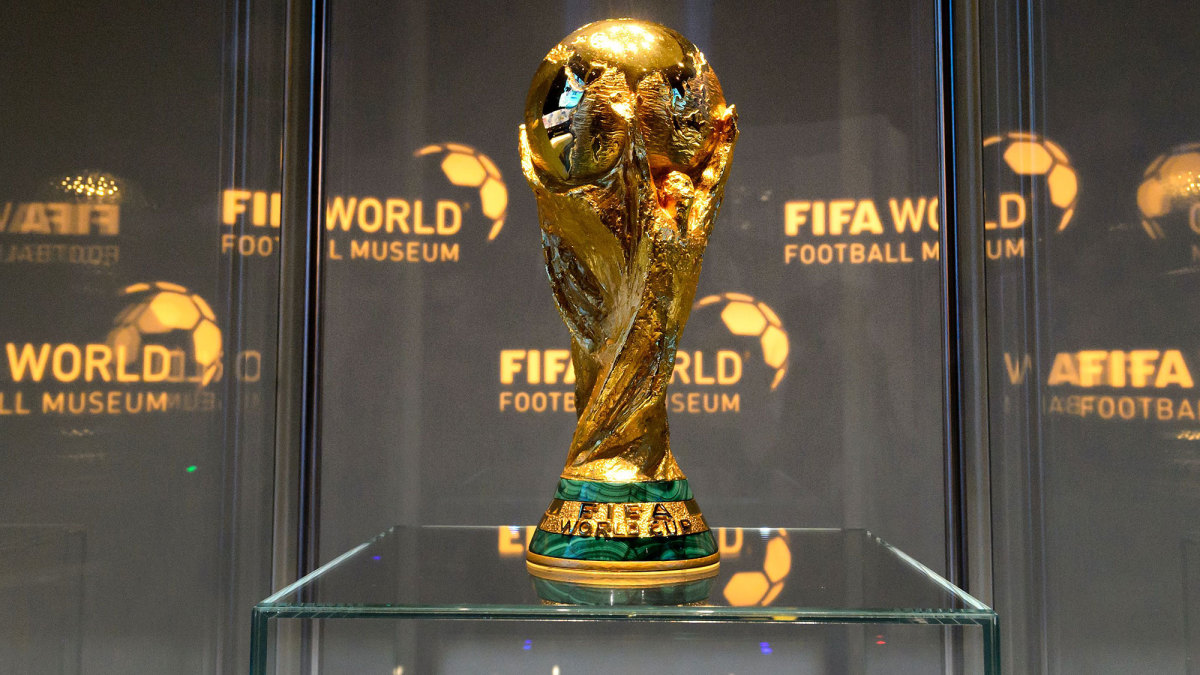FIFA Files Criminal Complaint vs. Sepp Blatter Over Its Own Museum
GENEVA (AP) — FIFA has filed a criminal complaint against former president Sepp Blatter over the finances of its loss-making soccer museum in Zurich.
Soccer’s governing body said on Tuesday it suspected “criminal mismanagement by FIFA’s former management and companies appointed by them” to work on the museum–long seen as a pet project of Blatter’s–in a renovated and rented city center building.
The FIFA World Football Museum opened in 2016 after $140 million of soccer money was spent refurbishing the 1970s office building to also include 34 rental apartments.
It was meant to open around May 2015, when Blatter won a fifth presidential election, but was delayed until after he left office amid pressure from American and Swiss investigations of international soccer officials.
Blatter committed FIFA to a rental contract with the building’s owner, insurance firm Swiss Life, that requires paying $360 million through 2045 at above market rates, soccer’s world body said.
FIFA said its criminal complaint following an external audit of the project was delivered by hand to canton (state) prosecutors in Zurich.
“That audit revealed a wide range of suspicious circumstances and management failures, some of which may be criminal in nature and which therefore need to be properly investigated by the relevant authorities,” FIFA deputy secretary general for administration Alasdair Bell said in a statement.
The Zurich prosecution office acknowledged receiving the complaint without giving more details.
Blatter’s lawyer, Lorenz Erni, said in a statement: “The allegations are baseless and are vehemently denied.”

Blatter risks investigation at local level while already a suspect in two criminal proceedings opened by federal prosecutors into how he spent FIFA’s money as president.
Those investigations involve FIFA paying $2 million to former UEFA president Michel Platini in 2011 and $1 million to the Trinidad and Tobago soccer body–effectively to disgraced former FIFA vice president Jack Warner–weeks before the Caribbean islands’ general election in 2010.
“Given the massive costs associated with this museum, as well as the general way of working of the previous FIFA management, a forensic audit was conducted in order to find out what really happened here,” Bell said.
The museum has made a loss each year including $50 million in 2016 that included one-off costs, FIFA said then in its financial report.
The most recent FIFA accounts for 2019 show almost $3.5 million revenue from the FIFA World Football Museum and $6.3 million costs for “investment and expenses.” There was a record 161,700 visitors at the Zurich building last year.
In the 2018 accounts, museum revenue was almost $4 million against $12 million in spending.
The FIFA museum was identified closely with Blatter from the time it was announced in April 2012.
His executive committee had already approved 180 million Swiss francs ($203 million) for what was being called “Project Libero,” and forecast to attract 300,000 visitors each year.
“It is high time that world football had a meeting place for its millions of fans,” Blatter said then of a museum originally to be built underground next to FIFA’s headquarters on a wooded hillside above the city.
One year later, the museum plan changed to a FIFA-funded renovation of a modernist building owned by Swiss Life.
FIFA said in a 2013 news release it signed a 40-year rental of “Haus zur Enge.” The museum would “occupy the second basement level through to the first floor” with office space and apartments on the upper levels to the ninth story.
“The FIFA museum project is a stroke of luck for Zurich and is a perfect fit for Swiss Life’s investment policy,” the insurance firm’s chairman, Rolf Dörig, said in the FIFA statement.
In a statement on Tuesday, Swiss Life said “we consider this a matter for FIFA. Therefore, we have no further comment.”
When the museum formally opened on Feb. 28, 2016 it was a first public duty for the new FIFA president, Gianni Infantino, who had been elected two days earlier.
Blatter did not attend the ceremony and had begun serving a ban from soccer by FIFA’s ethics committee after Swiss authorities revealed the Platini payment in September 2015. The ban expires next October when Blatter will be 85.
FIFA said on Tuesday its files on the museum project will be sent to ethics investigators.
The complaint filed against Blatter is the latest act in a busy year in criminal investigations linked to FIFA’s past and present presidents.
At least four criminal complaints were filed anonymously against Infantino and Switzerland’s attorney general, Michael Lauber, about three meetings they had in 2016 and 2017. Lauber was forced from office in the fallout including misleading a committee overseeing his work.
A special prosecutor appointed by Switzerland’s parliament to examine the meetings opened a case against Infantino in July. Potential charges include inciting Lauber to abuse his public office.
Blatter spoke this month with the special prosecutor, Stefan Keller.
Keller also recommended this month that federal prosecutors investigate Infantino for using a private jet on FIFA business in 2017. He could not open his own case because his remit is limited to matters involving Lauber.
FIFA said two weeks ago that Keller’s “malicious and defamatory” statement “borders on character assassination.”
